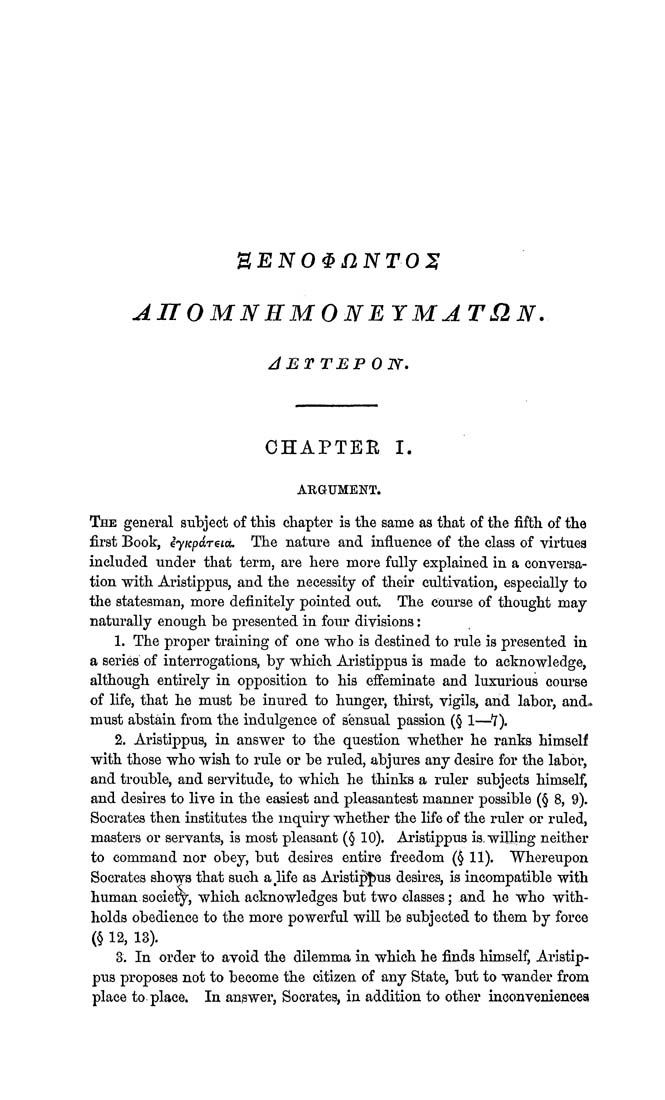UENO^flNTOS
AnOMNHMONEYMATSlN.
A ETTEP ON.
CHAPTER I.
ARGUMENT.
The general subject of this chapter is the same as that of the fifth of the
first Book, iyKpdreid. The nature and influence of the class of virtues
included under that term, are here more fully explained in a conversa¬
tion with Aristippus, and the necessity of their cultivation, especially to
the statesman, more definitely pointed out. The course of thought may
naturally enough be presented in four divisions:
1. The proper training of one who is destined to rule is presented in
a series" of interrogations, by which Aristippus is made to acknowledge,
although entirely in opposition to his effeminate and luxurious course
of life, that he must be inured to hunger, thirst, vigils, and labor, and*
must abstain from the indulgence of sensual passion (§ 1—'1).
2. Aristippus, in answer to the question whether he ranks himself
with those who wish to rule or be ruled, abjures any desire for the labor,
and trouble, and servitude, to which he thinks a ruler subjects himself,
and desires to live in the eeriest and pleasantest manner possible (§ 8, 9).
Socrates then institutes the inquiry whether the life of the ruler or ruled,
masters or servants, is most pleasant (§ 10). Aristippus is. willing neither
to command nor obey, but desires entire freedom (§ 11). Whereupon
Socrates shows that such a,life as Aristippus desires, is incompatible with
human socie^, which acknowledges but two classes; and he who with¬
holds obedience to the more powerful will be subjected to them by force
(§ 12, 13).
3. In order to avoid the dilemma in which he finds himself, Aristip¬
pus proposes not to become the citizen of any State, but to wander from
place to place. In answer, Socrates, in addition to other inconveniencea
|








